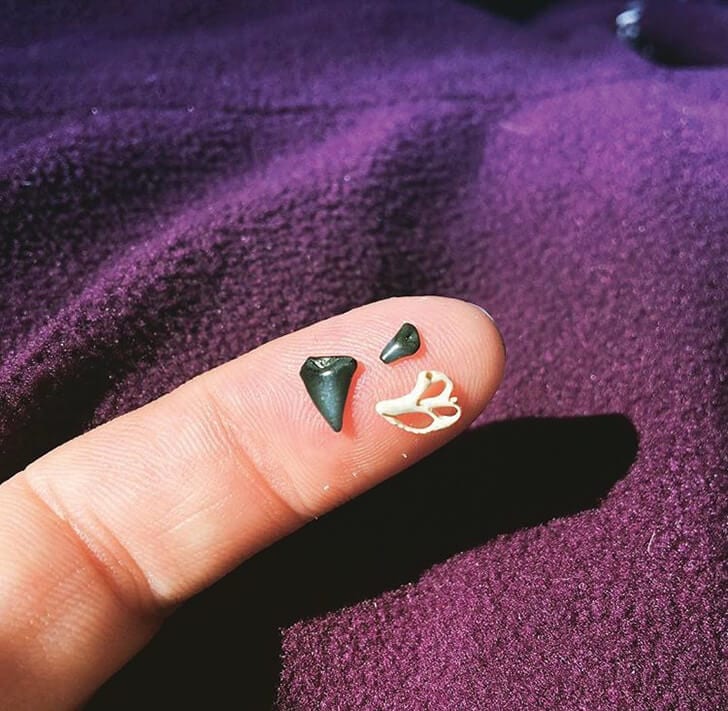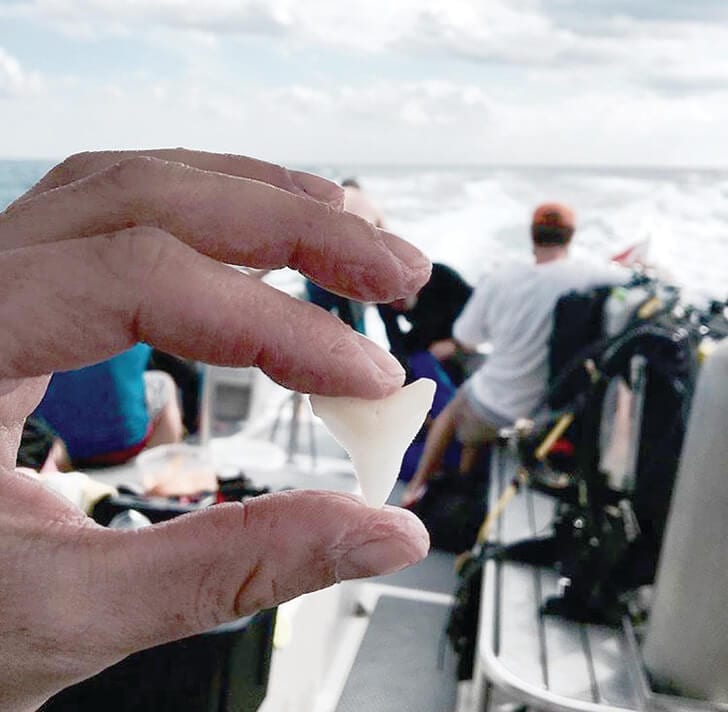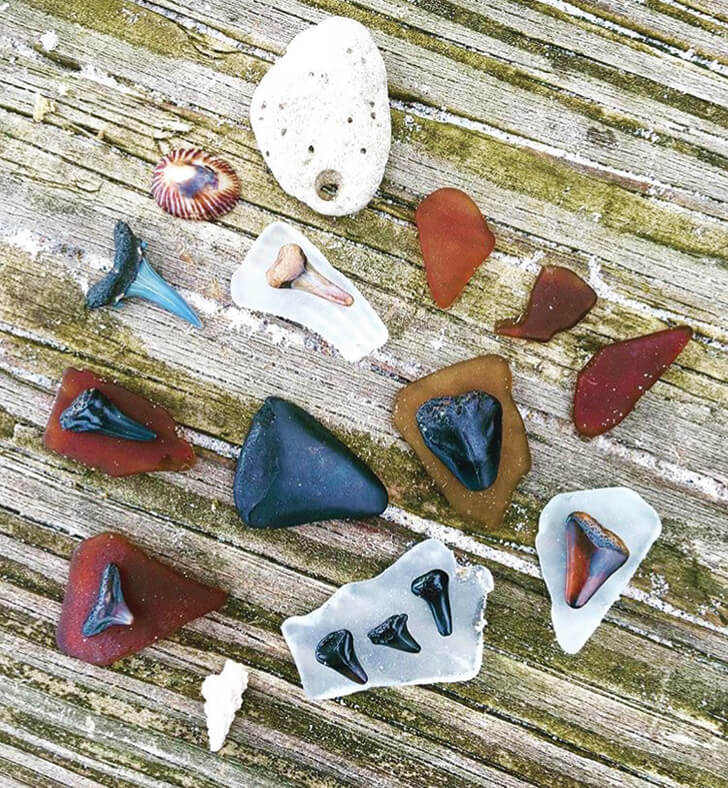Strolling along the beaches of Florida, a wanderer is apt to notice cream-colored shells piled along the waterline. They might spot shades of brown, green, turquoise or even blue seaglass scattered along the sand. It takes a particularly keen eye, however, to spot an even more elusive prize of the Florida beachcomber: a fossilized shark tooth.
Varying in size from a few millimeters long to the length of the palm of your hand, shark teeth can be found along Florida’s coasts, in freshwater riverbeds, and on sandy beaches dotting the Intracoastal waterways throughout the state.
In a lifetime, the average shark will shed a few thousand teeth. When close to shore, a freshly-lost tooth might be carried right to the beach by moving water currents or storm surges. Locally, brighter white or cream hued shark teeth are usually found near West Palm Beach, on the public beaches of Palm Beach Island or along Singer Island.
Most teeth, however, sink to the ocean floor or riverbed and settle among the sediment. It is due to the sediment that fossilized shark teeth appear in an array of colors, from jet black to dark grey, mottled brown and lighter toffee tones, and even some shades of splotched red and pink. Deep underneath the water, surges will tumble the tooth into the sand, burying it alongside fragments of seashells and coral. Over time, minerals like calcite and silica make their way into porous spaces of the teeth. The covering of sand and sediment protects shark teeth from abrasion, and helps prevent decay due to oxygen and bacterial exposure.
Darker teeth are rare along Florida’s lower east coast, but can be spotted by a patient observer on beaches along Juno and Jupiter, even spanning farther north into Martin County.
It takes thousands of years for a shark tooth to truly become fossilized, which makes them a valuable find for collectors and beach-goers. Although spotting shark teeth along local beaches takes a practiced eye, fossils are more commonly found on Florida’s west coast, particularly around Venice Beach.
Pura Vida Divers will be on the hunt for these elusive beach treasures, and invites you to join in the fun! February is Shark Month at Pura Vida, and they will have a month filled with related activities, educational sessions and travel opportunities.
On Sunday, Feb. 11, Pura Vida Divers will join Jupiter Dive Center for a Lemon Shark Dive to observe the aggregations that gather each year in our local waters. Spaces are limited on the two-tank dive, so call us at 561-840-8750 to sign up.
Join Pura Vida Divers on Friday, Feb. 16 for a Free Social Night, featuring guest speaker Dr. Kajiura, a Florida Atlantic University professor and researcher for their “Shark Lab.” Dr. Kajiura will share his research regarding shark migrations off Florida’s east coast, and the evening will feature complimentary potluck-style snacks, wine and beer.
Later in the month, sign up for a Fossil-Finding Expedition, and join Pura Vida as it explores Florida, learning how to find and identify fossilized shark teeth.
To register for any of the upcoming events, contact Pura Vida Divers at Info.PVD@PuraVidaDivers.com or 561-840-8750. See all of Pura Vida Divers’ upcoming activities at www.PuraVidaDivers.com.


